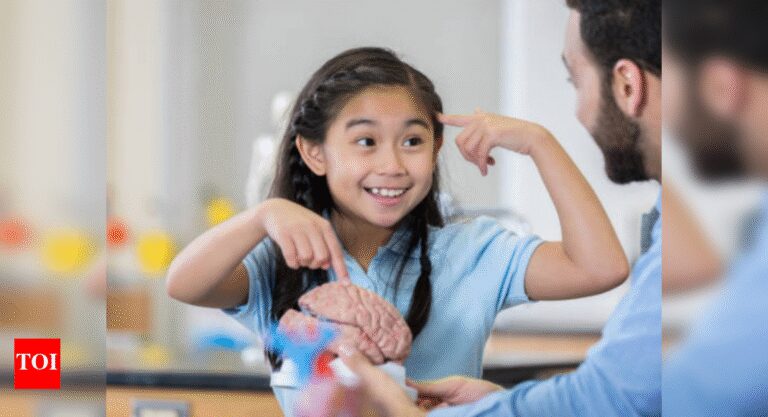
In classrooms across America, a troubling pattern has emerged where students who once sat attentively through lessons now fidget restlessly, their eyes darting away from blackboards towards invisible screens. While parents worry about their children’s ability to concentrate on homework, this is not merely a behavioural trend. It represents a fundamental shift in how children’s brains are developing in our digital age. Harvard researchers have been investigating this phenomenon, uncovering compelling evidence that our screen-saturated environment is rewiring young minds in ways that make sustained attention increasingly difficult.The real reason kids can’t focus in school anymore, according to Harvard experts, largely stems from early brain development issues compounded by modern environmental factors such as excessive screen time and insufficient meaningful interaction. Harvard research papers emphasize that cognitive and attentional difficulties linked to reading and focus start very early in life, sometimes as early as toddlerhood, due to neurological development patterns that are not always optimal for learning. These developmental challenges are further magnified by today’s digital distractions and insufficient traditional social and sensory experiences for children.
Integrated attention and reading difficulties study
The scope of the problem is staggering. The Covid-19 pandemic forced millions of students into remote learning environments but the issue runs deeper than mere exposure time. There are specific ways that the digital device exposure affects the developing brain. Unlike the sustained and sequential attention required for traditional learning, screen-based activities often promote rapid task-switching and immediate gratification responses. This creates an “attention residue” problem where children’s minds remain partially engaged with digital stimuli even when trying to focus on non-screen activities.Phil Capin, assistant professor at the Harvard Graduate School of Education, recently led a 2025 landmark study, which focused on children in grades 3-5 who have combined reading and attention struggles. The study introduced a unified intervention called Supporting Attention and Reading for Kids (SPARK). Capin argued that attention problems and reading difficulties tend to co-occur but are often addressed separately, limiting effectiveness.The study aimed to integrate interventions to improve reading fluency, vocabulary and comprehension while also supporting attentional capacity. It highlighted that an estimated 25 to 40 percent of students with reading struggles also have significant attention deficits, a public health problem recognised since 1998 by NIH testimony.
Early brain development and reading challenges
The neurological implications are profound. During critical developmental periods, excessive screen exposure appears to alter brain structure and function, particularly in areas responsible for sustained attention and cognitive control. Changes in neural pathways make it increasingly difficult for children to maintain focus on single tasks for extended periods.Another 2025 Harvard longitudinal study led by Nadine Gaab of Harvard Graduate School of Education revealed that the signs of reading difficulty can be detected in brain development as early as toddlerhood, which is even before formal schooling begins. Using MRI scans and behavioural assessments on children from infancy to childhood, the researchers found that some children start kindergarten with brain differences that affect their ability to learn to read.Early phonological processing was identified as a key factor linking brain development to later reading success. The study stresses the importance of early identification and intervention for at-risk children since younger brains exhibit greater plasticity, making early support critical to improving focus and academic outcomes.
Impact of screen time on attention and brain development
Digital devices can interfere with everything from sleep to creativity. The sleep disruption alone creates a cascade of attention problems, as tired brains struggle to maintain the cognitive resources necessary for classroom learning. The creativity impact may be equally significant because when children’s minds never experience unstimulated quiet time, they lose opportunities to develop the internal attention regulation skills that academic success requires.A 2025 study by Harvard’s Center on the Developing Child highlights another culprit: the pervasive use of screens at early ages. The research highlights that infants and toddlers develop more than a million neural connections per second, forming the foundation for future cognitive and emotional development. However, excessive screen exposure during these crucial years replaces richer sensory experiences such as touch, smell and personal interaction. This leads to brains developing under less optimal conditions, which can dull creativity and reduce engagement with the real world, impacting children’s ability to focus indoors and in school. Harvard expert Rich advocates for moderated screen use and encourages children to experience boredom as a creative space and learn self-regulation skills essential for better focus.
Supporting executive function skills
Perhaps the most concerning revelation is that these attention changes affect social-emotional learning as well. Children who struggle to maintain attention during peer interactions miss crucial social cues and have difficulty developing the deep relationships that support academic motivation and success.A 2021 study by Harvard’s Center on the Developing Child stressed the importance of developing five core executive function skills that are fundamental for focus in school including planning, focus, self-control, awareness and flexibility. These skills develop best in early childhood and adolescence. Executive function deficits correlate strongly with attention difficulties and poor academic outcomes. Encouraging activities that foster these skills such as shared planning, off-screen play and reading aloud helps build children’s ability to concentrate and self-regulate in increasingly distracted environments.Harvard experts warn that the real reason kids can’t focus in school boils down to early neurological development challenges compounded by today’s environmental changes, especially screen overuse. Integrated interventions targeting both reading and attention issues, early brain-based identification, reducing screen time and fostering executive function skills are key solutions identified by Harvard’s cutting-edge research. These findings are supported by studies published in 2025 by the Harvard Graduate School of Education and Harvard’s Center on the Developing Child.








